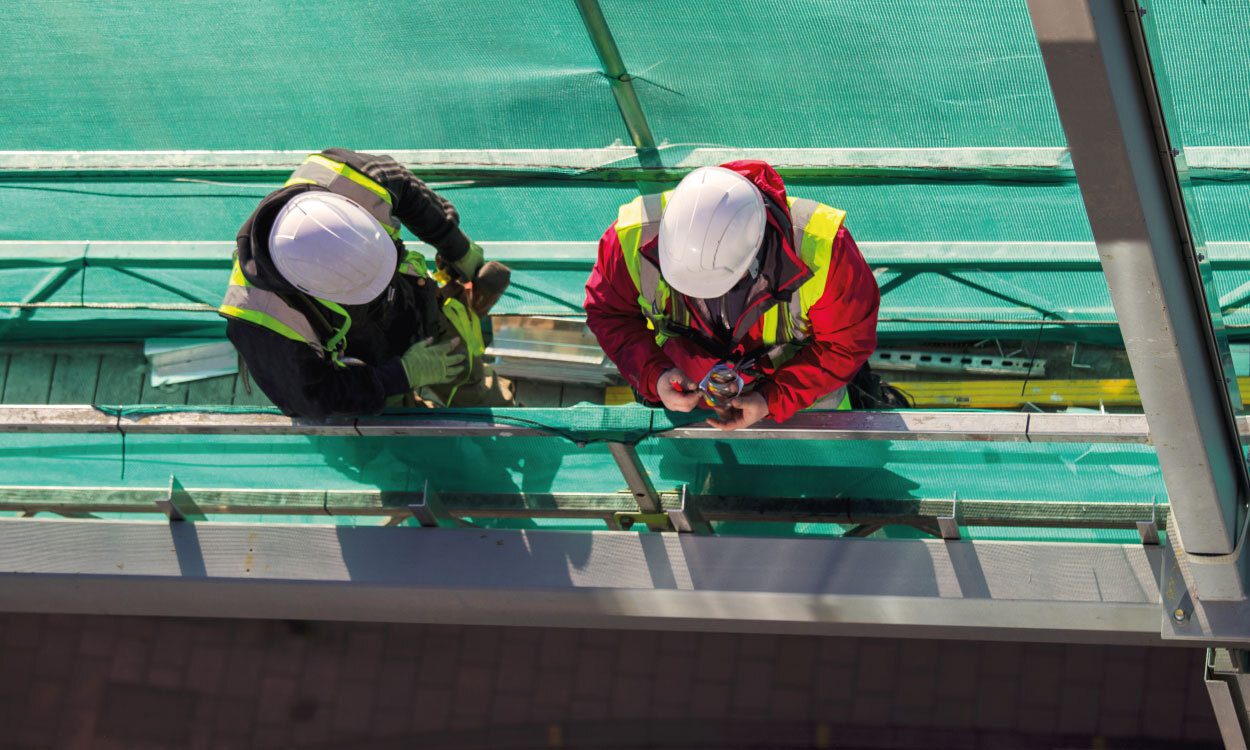

30 Jun 2025
How to Hire Subcontractors for Construction
Hiring the right subcontractors can make or break a construction project. Whether you’re running a large-scale commercial job or a small renovation, having skilled and reliable tradespeople on board is essential.
But, hiring a team for sub contract work isn’t as straightforward as hiring employees - and getting it wrong can lead to financial and tax implications. At Contractwise, we’re Construction Industry Scheme (CIS) experts, and we help protect contractors and subcontractors across the UK. Our services, such as payroll audits, will keep you fully CIS compliant while minimising the risk of a HMRC reclassification. In this article, we’ll take a closer look at how to hire subcontractors for construction.
Read on for more…
What is a subcontractor?
A subcontractor is a self-employed individual or business that carries out specific work on a project but isn’t directly employed by you. They tend to be specialists in a particular field or trade and are brought in to complete certain jobs on a construction project. Unlike employees, subcontractors will handle their own tax, usually through CIS, and will usually provide their own equipment.
Some common examples of subcontractors include:
Electricians
Plumbers
Carpenters
Bricklayers
Roofers
Plasterers
Painters and decorators
Stone masons
And more
Unlike employees, subcontractors will work on a per-project basis and often set their own hours. They can also work for multiple clients simultaneously.
What are labour-only subcontractors?
Not all subcontractors are the same.
Labour-only subcontractors will only provide their labour. They’ll work under your direction, using your tools, materials and following your rules. For this reason, they can sometimes be hard to distinguish between employees in how they operate.
If HMRC see these workers as employees, you may be liable for PAYE, National Insurance and other financial obligations, which is why it’s vital to classify them correctly from the outset.
In contrast, bona fide subcontractors are independent. They bring their own materials and tools and often provide fixed quotes for their work. They tend to manage their own workflow and are less likely to be reclassified as employees by HMRC. No matter what kind of subcontractors you want to hire, at Contractwise, we will make sure they’re always classified correctly to ensure you never fall afoul of CIS rules.
How to hire subcontractors for construction
Getting the hiring process of your subcontractors right from the start can save you from costly headaches later on. Here are our top tips for hiring subcontractors effectively:
Check reviews
Word of mouth remains one of the most powerful tools in the construction industry. Ask other contractors or project managers if they have anyone they can recommend that they’ve worked with before. In addition, most reputable subcontractors will also have online reviews on the likes of Google and Trustpilot. Take some time reading through these to get a sense of whether the subcontractor is suitable for your project.
Keep an eye out for positive feedback and steer clear of subcontractors with multiple complaints.
Verify documents
Before hiring a subcontractor, make sure they’re qualified to carry out the work. Different trades have different certifications, so make sure you know what to look for.
Verifying documentation upfront helps ensure you’re hiring a competent and legally compliant subcontractor.
Negotiate the contract
Like any business arrangement, it is vital to have clear terms in place from the start. Upfront, you should agree upon the following:
Working hours
Daily tasks and responsibilities
The overall scope of the work
Liability agreements
Tax information (check whether they’re CIS registered or not)
Start and completion dates
Payment rates and methods
Site rules or health and safety expectations
Don’t leave any room for assumption, as any lack of clarity could lead to disputes that delay your project or impact the quality of work.
Make them aware of their responsibilities
While many subcontractors are responsible for managing their own tax and insurance, they still need to follow health and safety procedures on your site, adhere to set deadlines and cooperate with your employees or other teams also working on the project. With this in mind, it’s crucial to set clear expectations from the start.
At the beginning of the project, take some time to set out:
Site-specific rules
Who they should report to
Any materials or equipment they will need to bring
Working hours and break times
Clear communication from the start will help avoid any confusion and ensure productivity always remains high on the site.
Create a written subcontractor agreement
To protect yourself and make the subcontractor status clear with HMRC, always create a written subcontractor agreement. This document should outline:
The nature of the professional relationship (contractor to subcontractor and not employer to employee)
The subcontractor’s obligation to handle their tax affairs
Payment terms and schedule
Details of the work and standards that need to be mey
Insurance requirements (subcontractors should provide their own insurance)
Termination clauses
This agreement helps to demonstrate that the subcontractor is genuinely self-employed and not part of your workforce. This reduces the risk of any employment status challenges or fines from HMRC. At Contractwise, we can handle these admin tasks for you to ensure you’re always legally compliant and that subcontractor agreements are tailored to the construction industry.
Consider the length of engagement
It’s perfectly fine to work with the same subcontractor multiple times across different projects - even if it keeps them continuously busy or even exclusive to you. In fact, building positive working relationships is recommended.
However, you must be careful not to blur the lines between subcontractor and employee. A HMRC reclassification can be hugely costly to your business, with large fines regularly handed out.
Final Thoughts
Hiring subcontractors is a great way to enhance construction projects, but it comes with challenges. The key to success lies in hiring the right people, verifying their credentials and establishing clear agreements from the outset.
With the help of Contractwise, you can safely grow your team with qualified subcontractors who will help you deliver project success to the highest standards. For more information on our range of CIS services, contact us today.